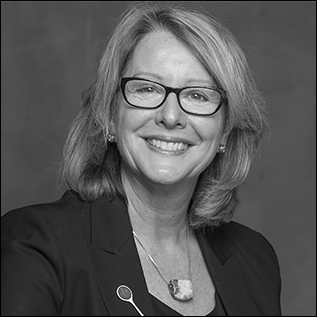Mary MacAusland, CPA, Ph.D., is a senior lecturer at the Nolan School of Hotel Administration in the Cornell SC Johnson College of Business, where she teaches courses in financial and managerial accounting and financial statement analysis. Prior to joining Cornell, Professor MacAusland was actively engaged in both academe and industry, serving in senior positions in several organizations. She was previously on the faculty at the University of New Hampshire and Franklin and Marshall College, and taught for several years at a small community college. Professor MacAusland also worked in the life-care management and development field as a controller and has held numerous positions with the United States Tennis Association (USTA), most recently as vice-chair of the audit committee. She served on the executive boards of USTA Middle States and the Berks County Chapter of the American Red Cross for many years and chaired several special events, raising significant amounts for local charities. Professor MacAusland was also a longtime member of the investment committee for the Berks County Community Foundation, where she helped to establish investment guidelines and monitor performance for $50 million in managed assets and was integral in establishing a permanent fund with the foundation to provide grants for tennis programs for at-risk youth.
Course Overview
Imagine that you know that the administrative expenses for your hotel are 6%. Looking at other properties within your peer set, you can see that your competitors' administrative expenses are 4.5%. Is your property getting value out of spending more? How can you tell? What changes might you choose to make in response to that information?
As a hotel manager or decision maker, you want to analyze what the metrics are telling you so that you can make informed decisions that will increase profitability for your property. In this course, you will practice analyzing leading hotel benchmarking reports and their provided industry data, drawing inferences about what it means for you. You will delve into the process of benchmarking so that you can identify how well one property is performing in comparison to its peers. Using relevant metrics, including revenue per available room, dollars per available room, dollars per occupied room, expenses on an occupied room basis, and occupancy percentages, hotel owners and operators can compare the financial performance of their properties with industry-wide averages of a similar profile.
You are required to have completed the following courses or have equivalent experience before taking this course:
- Examining the Uniform System of Accounts for the Lodging Industry (USALI)
Key Course Takeaways
- Identify the key terminology, metrics, and format of commonly used benchmark reports
- Given data on various chain scales, analyze the performance of a property relative to the benchmarks
- Given data for a competitive set, evaluate the performance of a property relative to the reported metrics

How It Works
Course Author
Who Should Enroll
- Hotel owners
- Hotel general managers and directors
- Hotel managers and department heads
- Hotel employees using financial information for decision making
- Accounting professionals seeking to move into the hotel industry
100% Online
cornell's Top Minds
career


